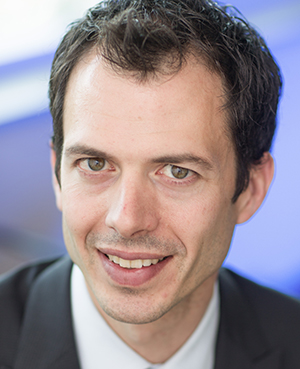Two members of the Faculty of Medicine are leading a five-year project that aims to improve personalized treatments for patients with pancreatic cancer.
The Enhanced Pancreatic Cancer Profiling for Individualized Care (EPPIC) aims to sequence metastatic pancreatic tumours of 400 patients in Quebec, Ontario, Alberta and British Columbia. They hope to improve understanding of pancreatic cancer biology to individualize treatment strategies, and to facilitate the development of new treatment options for a disease with just a nine per cent five-year survival rate. Over the course of the study, the team hopes outcomes will be improved by guiding patients into specific clinical trials in real time.
“For many years it’s been hopeless from a patient perspective, and we are hoping to help shift this,” says Daniel Renouf, an Assistant Professor in the Division of Medical Oncology who, along with David Schaeffer, an Assistant Professor in the Department of Pathology and Laboratory Medicine, is leading the $5 million project funded by the Terry Fox Research Institute.
Pancreatic ductal adenocarinoma is beset by a lack of early detection tests, very limited treatment options, and no known biomarkers that can be used to direct therapy.
“Our project focuses on metastatic cancer versus surgically resectable primary tumours, because this is the clinical problem we see most often,” says Dr. Schaeffer, noting a priority is to discern if the metastatic and primary tumour differ in their genetic make-up. Four out of five patients have metastatic cancer at the time of diagnosis and most will succumb within a year.
Pancreatic cancer is the fourth most common cause of cancer-related death in Canada, and affects 5,500 patients a year. In Canada, cancer pancreatic rates are projected to double by 2030. Eighty per cent of patients have metastatic cancer at the time of diagnosis, yet the majority of pancreatic cancer research is only done on the primary tumour.
In the United States, pancreatic cancer has just surpassed breast cancer in terms of fatality to become the third most common cause of cancer-related deaths.
“My push is to keep the support coming for the research, and to bring hope to other pancreatic cancer patients. This is a disease that needs more hope,” says study volunteer Susan Stewart, 57, a North Vancouver resident who was diagnosed with Stage IV terminal pancreatic cancer in January 2017.
This project is currently under way in Vancouver and Toronto through two clinical trials, and will be expanded shortly to include eligible patients in Montreal, Kingston, Ottawa, Calgary, and Edmonton. Genomic sequencing and bioinformatics analyses of patient tumours will be conducted at the BC Cancer Genome Sciences Centre and the Ontario Institute for Cancer Research (OICR).
The team will also store and analyze the genomic and clinical data collected in a knowledge bank that will be shared by Canadian and international researchers seeking ways to improve treatment. The bank will be the first of its kind in Canada.
“Pancreatic cancer research has been historically underfunded, and we are very excited to be expanding such a successful personalized medicine project to patients across Canada,” said Victor Ling, TFRI’s President and Scientific Director, as well as a Professor in the Department of Pathology and Laboratory Medicine. “We hope precision medicine may hold the key to finding better treatments for this incurable disease.”
EPPIC’s multidisciplinary team also includes scientists from BC Cancer, Vancouver Coastal Health Research Institute, University of Calgary, University of Alberta, Princess Margaret Cancer Centre, University Health Network, McGill University Health Centre (and its research institute), Centre hospitalier de l’Université de Montréal, Queen’s University and the Ottawa Hospital.
TFRI’s investment in EPPIC also builds on funding from BC Cancer Foundation, OICR, Princess Margaret Cancer Foundation, Pancreatic Cancer Canada and VGH and UBC Hospital Foundation.

